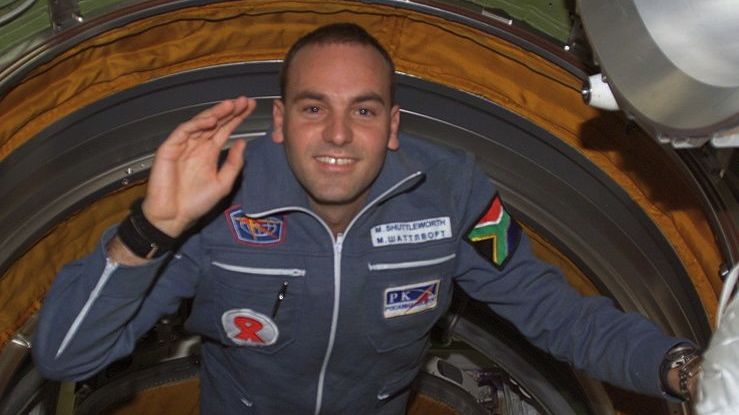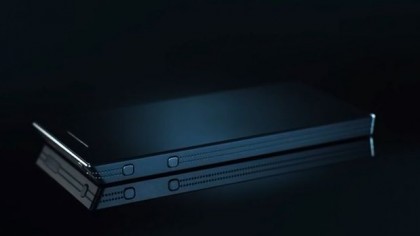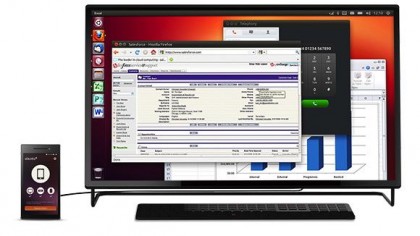Crazy, risky, bold: The Ubuntu Edge embarks on a new phone frontier
Mark Shuttleworth is willing to take some risks

Months before Mark Shuttleworth took off for space, he had an idea that made some of the more seasoned pros around him slightly uneasy.
"I was sitting down with my counterparts in Star City [Russia] and we were talking about laptops," Shuttleworth recalled during an interview with TechRadar this afternoon.
"The laptops that were certified to fly on the Space Station, they were P166s, and this was 2001. I said, 'I think we can fly the latest laptops.'"
The Canonical founder's suggestion was met with hesitation - after all, careers are on the line for decisions that send anything into orbit - but after testing Shuttleworth was permitted to bring three of the then-latest laptops to the ISS.
"For me, it was mission critical that I take these machines into space, but I was in a position to take more risk. We ended up with three great laptops that became the next certified model of laptops on the Space Station.
"There's nothing dumb about NASA, but by bringing a different perspective to risk and experimentation, it moves things forward faster."
Risk rewards
Shuttleworth offered this space travel anecdote as an analogy for the Ubuntu Edge, a "superphone" Canonical announced today along with a $32 million (about £20.8m, AU$34.5m) Indiegogo campaign.
Get daily insight, inspiration and deals in your inbox
Sign up for breaking news, reviews, opinion, top tech deals, and more.
The phone industry, he said, has a low risk appetite when it comes to products: Like sending an unfamiliar machine into space, putting a more experimental handset on the market can have shattering consequences for the people involved.

"[The Edge] is a concept car that people can drive off the lot," Shuttleworth said, turning to another analogy. "It's a test of the future, because the phone industry really can't do this. Not because it's not smart enough or doesn't have the resources, but the mechanism is such that they can't do it."
In the hours since it was announced, the vibe as been "very positive" for the the campaign and the phone that will dual boot both the Ubuntu for smartphones OS and Android.
"I think we've even beat out the royal baby on Twitter - though we'll be in labor for 30 days."
Canonical has a month to reach the multimillion dollar amount needed to get the Edge into users' hands. As of 4:10 p.m. PT Monday, the ticker was at $2,012,912.
"It's crazy and bold, but that's what it takes to bring a new device to market," Shuttleworth said of the figure. "We're really finding a new way to get phones to enthusiasts, and I'm really excited about that."
Living on the Edge
As appealing as its specs are, the Edge isn't meant to be a mass market device. It's aimed at enthusiasts, early adopters and enterprises, those that are willing to take the risk in "cracking those next generations," while also fronting $830 (about £540, AU$897) for a phone that won't be ready until May 2014.
Canonical needs about 40,000 of these kind of people to put their money where their interest is. If it doesn't reach its goal, than the Edge won't get made.
Though the specs aren't finalized, the Edge is leaning towards housing 4GB of RAM, a multi-core processor and 128GB of storage - resources it can call on when plugging into a PC.

"The point of the Edge is to break new ground - in this round we really want to stretch the RAM and storage of the device. We're trying to cross that chasm between phone and PC and be the superphone."
"This round" is a key phrase - if the Indiegogo experiment works, Shuttleworth said Ubuntu campaigns might become a regular occurance.
"In the second generation, we could invite companies that have interesting sensors or capabilities that they've tried in the lab but not in the field. We could have this happen on an 18 month or so clip to chip away at the leading edge of possibility," he effused.
Michelle was previously a news editor at TechRadar, leading consumer tech news and reviews. Michelle is now a Content Strategist at Facebook. A versatile, highly effective content writer and skilled editor with a keen eye for detail, Michelle is a collaborative problem solver and covered everything from smartwatches and microprocessors to VR and self-driving cars.
